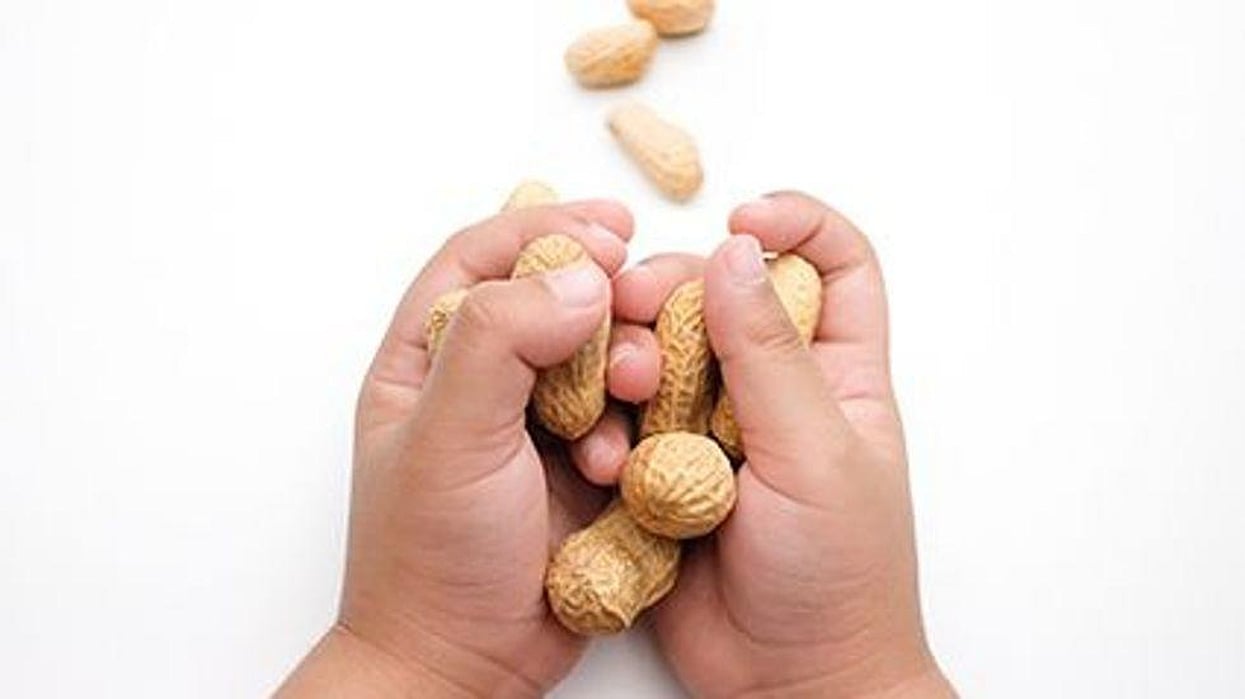Immunotherapy Works Well for Young Children With Peanut Allergy

WEDNESDAY, May 10, 2023 (HealthDay News) -- For children aged 1 to 3 years with peanut allergy, epicutaneous immunotherapy for 12 months is superior for desensitizing children to peanuts, according to a study published in the May 11 issue of the New England Journal of Medicine.
Matthew Greenhawt, M.D., from the University of Colorado School of Medicine in Aurora, and colleagues conducted a phase 3, randomized trial involving children aged 1 to 3 years with peanut allergy. A total of 362 children with an eliciting dose of 300 mg or less of peanut protein were randomly assigned to receive epicutaneous immunotherapy delivered by means of a peanut patch (intervention group) or to receive placebo for 12 months in a 2:1 ratio.
The researchers found that the primary efficacy end point (treatment response as measured by the eliciting dose of peanut protein at 12 months) was observed in 67.0 and 33.5 percent of children in the intervention and placebo groups, respectively. Adverse events that occurred during use of intervention or placebo were observed in 100 and 99.2 percent of patients, respectively, in the intervention and placebo groups, irrespective of relatedness. Serious treatment-related adverse events occurred in 0.4 percent and no patients, respectively, while treatment-related anaphylaxis occurred in 1.6 percent and no patients, respectively, in the intervention and placebo groups.
"Twelve months of daily epicutaneous immunotherapy with a patch containing 250 μg of peanut protein (approximately 1/1000 of one peanut) resulted in a higher frequency of desensitization than the use of placebo, a level that was sufficient to lessen the likelihood of allergic reactions upon accidental exposure," the authors write.
The study was funded by DBV Technologies.
Abstract/Full Text (subscription or payment may be required)
Editorial (subscription or payment may be required)
Related Posts
Mailed At-Home Disposal Kits Up Opioid Disposal Rates
TUESDAY, May 10, 2022 (HealthDay News) -- Mailed at-home disposal kits increase...
Medical Groups Urge Protections for Health Workers Providing Gender-Affirming Care
WEDNESDAY, Oct. 5, 2022 (HealthDay News) -- Three leading medical groups have...
Poll: Only Half of Older Adults Have Heard of New RSV Vaccine
MONDAY, Aug. 28, 2023 (HealthDay News) -- About half of older adults (52...
Aumentan los casos de niños infectados con un virus vinculado con una enfermedad que provoca parálisis
MIÉRCOLES, 28 de septiembre de 2022 (HealthDay News) -- Los casos de un virus...
